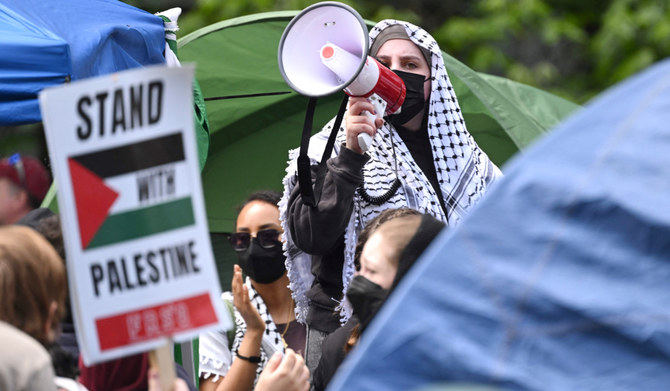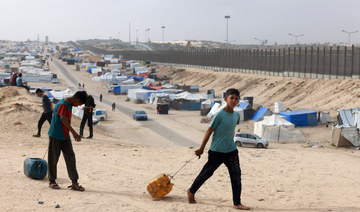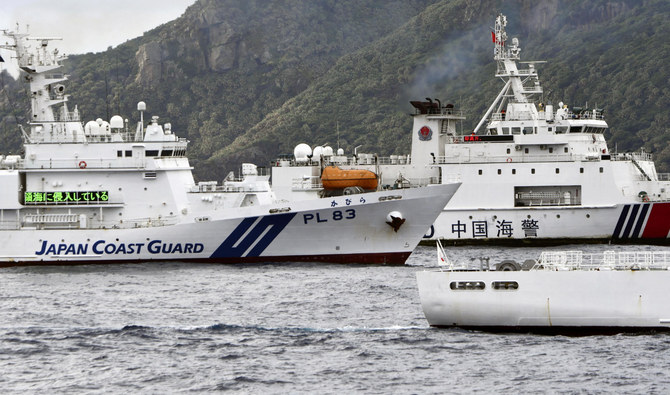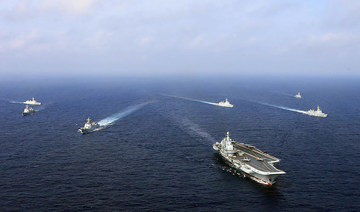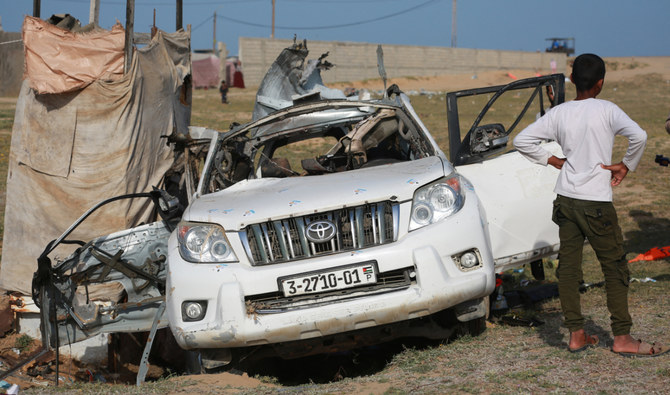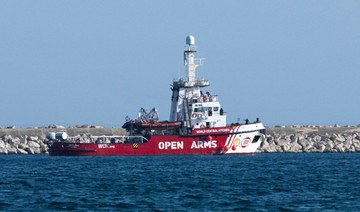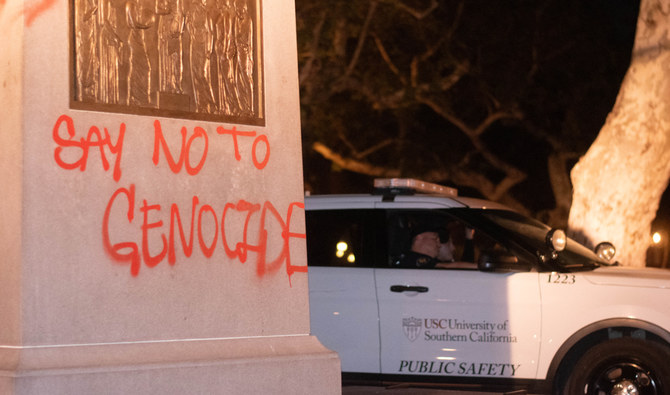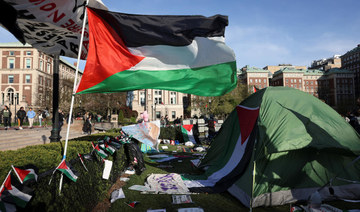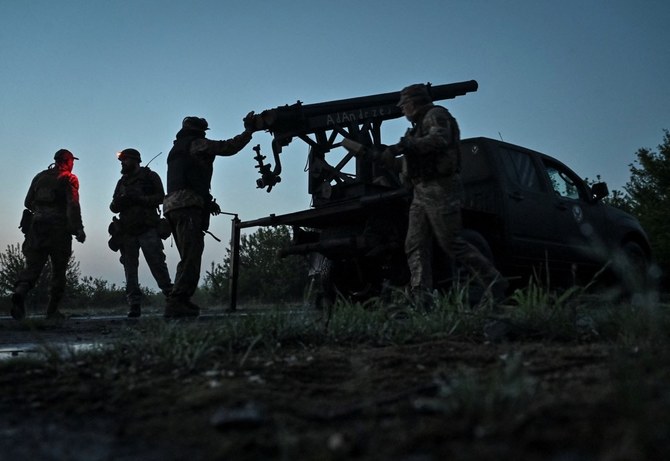LONDON: The grave of a British Muslim, believed to be a direct descendent of the Prophet Muhammad (peace be upon him), has been discovered in a suburban town about 50 kilometers (30 miles) southwest of London.
Nestled in the woodlands of Woking, Surrey, Princess Sharifa Musbah Haidar El-Hasimi (also known as Musbah Khanum and Musbah Haidar El-Ghalib) lies in one of Europe’s oldest Muslim cemeteries, surrounded by the graves of other notable Muslim Britons from the late Victorian period and beyond.
The burial ground, the first Muslim cemetery established in Britain, was unearthed as part of a trail led by Everyday Muslim, a non-profit organization dedicated to documenting Muslim heritage in the UK.
“Fascinating revelations on the history of this particular princess and her final resting place have been unearthed during a self-guided trail that takes visitors to three of Britain’s most important Islamic sites, offering an overview of each one,” said Tharik Hussain, the project’s manager.
It was Hussain who first discovered the story of the Princess when he stumbled across one of her books in a small bookshop in Brighton about six years ago. Captivated by this discovery, he began researching her background.
Princess Musbah Haidar, according to Everyday Muslim, was the second daughter of the Grand Sharif of Makkah, Amir Ali Haidar of the family of Devi Zeids, who claim to be direct descendants of the Prophet Muhammad.

Princess Musbah Haidar was the second daughter of the Grand Sharif of Makkah, Amir Ali Haidar of the family of Devi Zeids, who claim to be direct descendants of the Prophet Muhammad. (Supplied, no known copyright)
Princess Musbah’s mother was an Englishwoman of Irish descent called Isabel Dunn, who converted to Islam and became Amira Fatima, the second wife of Haidar. She was employed as an English teacher for the children from his first marriage.
Everyday Muslim reported that Princess Musbah was born at the family retreat, known as Chamlujah, in Istanbul on Nov. 25 1918, and had an older sister called Sfyne and a brother named Faisal.
She was initially brought up in the city, but following the dissolution of the Ottoman Empire, her family was forced to leave.
Later she moved to England, and married Maj. Francis Stewart Fripp, who later converted to Islam, taking the name Ghalib.
The princess’s ancestry is not well known as, at the time, the Ottomans had installed the other side of her family on the throne in Makkah. In 1916, with the encouragement and support of Britain, the then Sharif of Makkah, Hussein bin Ali, led a revolt against the Ottomans to create a united Arab state.
Everyday Muslim states: “Her great grandfather was the late Emir Abdul Muttalib, who was the grandson of Emir Musaad, who was directly descended from the patriarch of the House of Devi Zeid, Muhsin, whose brother Abdullah was the patriarch of the House of Devi-Aoun, which is the family tree of the current monarchs of Jordan and the historic monarchs of Iraq.
“Both houses stem from Emir Hassan, whose lineage is traced directly back eleven generations to Emir Katada of Makkah in 1174 AD. Emir Katada’s lineage traces back a further eight generations to Abdullah, the son of Mohammed Al-Alaoui, who is the grandson of Abdullah, the son of Hassan Al-Mussema.”
Al-Mussema was the son of Hassan, the brother of Hussein, whose father was the fourth caliph of Islam, Ali, the husband of Fatima, the daughter of the Prophet Muhammad.
In her lifetime, the princess authored two books; “Arabesque: an account of Harem Life,” detailing her life as a Makkan princess, and “Dawn Beyond the Tamarisks.” Her death was announced in The Times in January 1977.
According to Hussain, the two other Muslim sites in Woking the organization promotes have also been in the media recently: The Woking Muslim War Cemetery, which was renovated a few years ago and featured in the centenary celebrations of the Great War, and the Shah Jahan Mosque, which became the first in the country to be listed as a grade I historic monument as the first purpose-built mosque in northwest Europe.
The latter of these, named after Sultan Shah Jahan Begum, ruler of the British Raj tributary state of Bhopal, has a significant history.

The 130 year-old Shah Jahan mosque, in suburban Surrey, bears the name of its key donor, the Sultan Shah Jahan Begum, ruler of the British-Indian princely state of Bhopal. (Everyday Muslim/Tharik Hussain)
It was the vision of Dr. Gottlieb Wilhelm Leitner, an orientalist born of Jewish parents from Hungary. A remarkable individual, according to the mosque’s website, aged 17 he “took a degree at King’s College, London, by which time it is said he could speak 15 languages.” He later went on to found the forerunner to the School of Oriental and African Studies.
The mosque itself was designed by Anglo-Irish architect William Isaac Chambers in a style that mirrored Indian Mughal architecture from the 16th century.

FUNFACT
In popular culture, the Shah Jahan Mosque was destroyed in H.G. Wells’ novel “War of the Worlds,” which was set in the author’s hometown of Woking.
Why Woking of all places?
Lietner, a religious scholar who lived and worked for many years in India and abroad, wanted to set up a college that would allow people to study the religions of the East.
“He came up with a site just outside London, in Woking, where this beautiful gothic building, known at the time as the Royal Dramatic College, had fallen on hard times and was up for sale. So it was really about convenience. It came with lots of land and it meant he didn’t have to pay the high prices that he would have paid had he found somewhere in London,” Hussain told Arab News.
Lietner wanted to build free places of worship there as well, including a Hindu temple, an Eastern Christian church, a synagogue and a mosque. Because he anticipated people from all over the world would come, including Muslims, one of the first things he did in 1884 was secure a plot at the nearby cemetery (Brookwood) exclusively for the use of Muslim burials.

The mosque (interior pictured above with the direction of the qibla) was built initially, along with a Muslim cemetery, as Dr. Gottlieb Wilhelm Leitner understood that burial rites in Islam were a very important rite. (Everyday Muslim/Tharik Hussain)
A stone still stands to this day inscribed with specific instructions on how to bury Muslims, as very few people in Victorian Britain understood the specific procedures.
His institute flourished and after five years he began building the mosque, but passed away before he could fulfill his vision.
The Shah Jahan Mosque was completed in 1889, but according to its website: “Abdullah Quilliam’s Liverpool mosque, opened in 1889, pre-dates Woking by a few months, but the Shah Jahan has the honor of being the first purpose-built mosque in Europe outside of Muslim Spain.”
FASTFACT
The Shah Jahan Mosque in Woking is the oldest purpose-built mosque in northwestern Europe and was known as the “Makkah of Europe” during the early 20th century, when it became the center of Islam in the UK.
Hussain adds: “So this is why Woking, because it had Britain’s first purpose-built mosque and Britain’s first Muslim cemetery, so naturally Muslims were drawn to it.”
Unfortunately, the mosque was neglected after Leitner’s passing for over a decade, but was then restored by an Indian lawyer, Khwaja Kamal-ud-Din, who had befriended influential Victorians curious about Islam, including a Lord who later became a convert.
His name was Lord Headley, also known as Sheikh Rahmatullah Al-Farooq, an Irish peer, and one of the leading members of the Woking Muslim Mission who helped the center flourish, with the aim of bringing it back to life as a platform for promoting islam in Europe, even becoming home to one of the first Muslim publications in Europe, The Islamic Review.
That is why Woking has been dubbed the “Makkah of Europe” by the organizers of the trail.
The Muslim cemetries
The Woking Muslim War Cemetery, now known as the Peace Gardens, played a prominent part in the remembrance of the centenary of the First World War, between 1914-18. It was the final resting place of 27 Muslim soldiers who fought for the British Empire and Free French Forces during the two great wars..
But it is the other cemetery that Everyday Muslim is keen to highlight, which you could say was the Westminster Abbey of Muslim cemeteries.
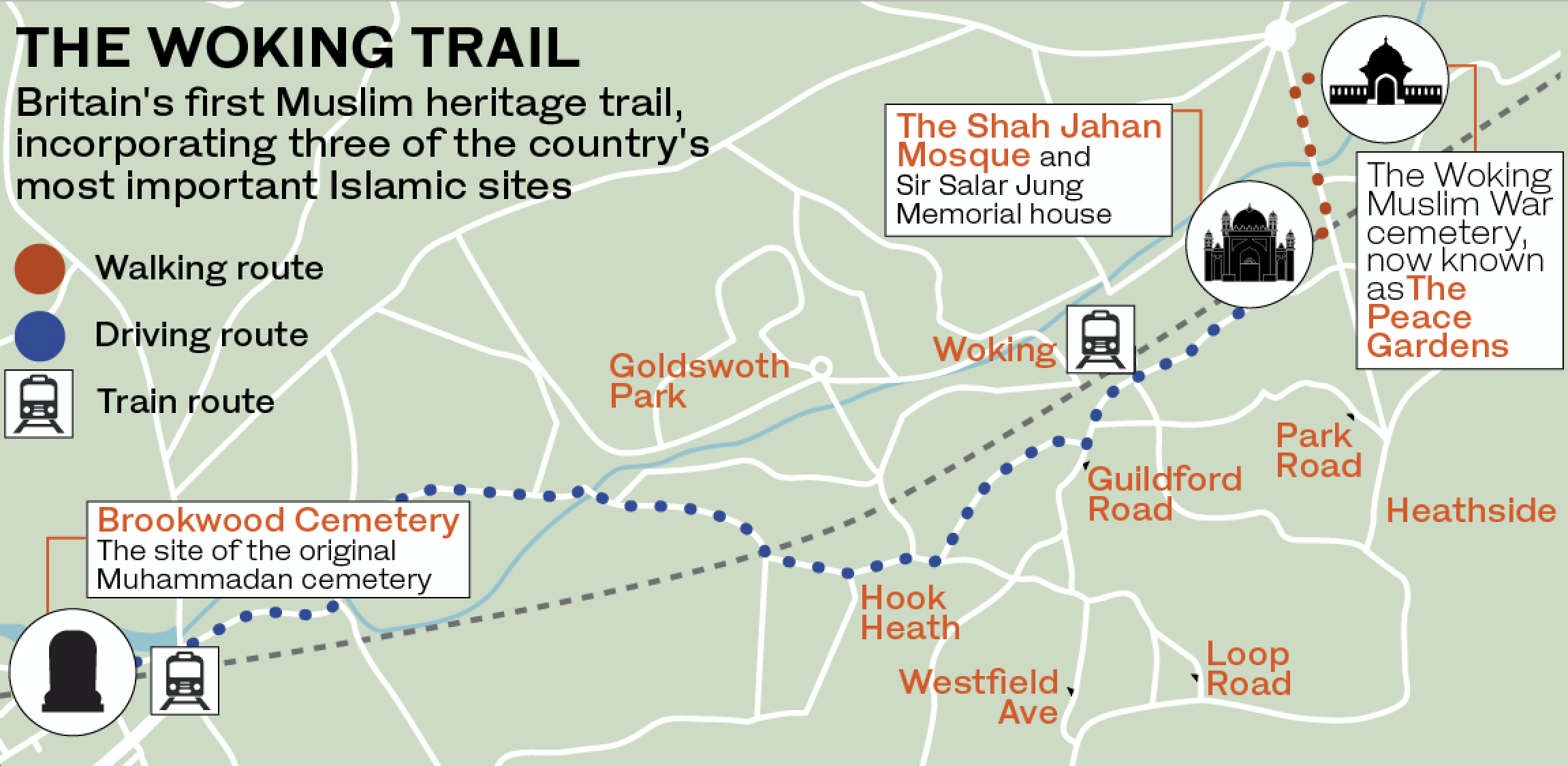
“This site is probably the least known and ironically is actually the oldest Muslim space we know of in Britain. It is a plot of land originally known as the ‘Muhammadan Cemetery,’ founded in 1884, within the nearby Brookwood cemetery, by Dr. Leitner,” Hussain told Arab News.
Princess Musbah resides here alongside Abdullah Quilliam (1856‑1932), founder of Britain’s first mosque and Muslim publication, Muhammad Marmaduke William Pickthall (1875‑1936), author of the first ‘native’ English translation of the Holy Qur’an, Naji Al‑Ali (1936‑1987), Palestinian political cartoonist and creator of “Handalah,” Sepoy Ahmad Khan (died 1914), the first British Muslim soldier buried on British soil, and many other famous Muslims, such as Victorians, princes and princesses, sultans and so on.
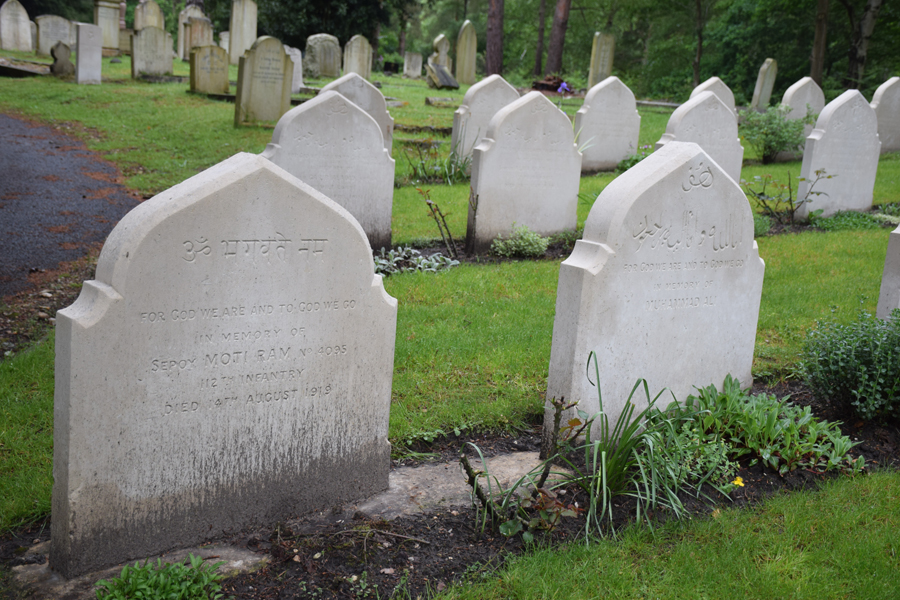
The cemetery in Woking is home to several important Muslim dignitaries. (Everyday Muslim/Tharik Hussain)
What is the aim?
Everyday Muslim wants to reach a point where sites such as these are not labelled as “British Muslim” heritage, but just “British” heritage.
Hussain, who also develops self-guided trails across the world for Lonely Planet guidebooks, said it should be recognized as a significant part of the island's history
Sir Laurie Magnus, chairman of Historic England, which is responsible for protecting and championing the country’s heritage, said “Muslim heritage is very much a part of Britain’s heritage and I am delighted to launch this trail,” to celebrate these beautiful sites.
The initiative was aided by the National Lottery Heritage Fund, as part of a bigger project concerning the heritage and history of the mosque and the surrounding area.
Hussain said: “We wanted to put these trails out there so that Muslims and non-Muslims up and down the country could see the potential.”
He said they see this as a start, and hope to receive more funding to highlight Muslim heritage trails across the UK to make Muslim heritage in Britain more visible and a normalized part of the wider narrative.
“I think it’s really cool that in the process of trying to unearth British Muslim heritage, we are not only unearthing all these amazing stories of British people who were doing amazing things as Muslims and converts, but we find someone who has British blood and the Prophet’s blood. I think that’s just pretty fabulous, and something we should celebrate and embrace,” Hussain concluded.
The Trails developed by Hussain are available to download from here.















